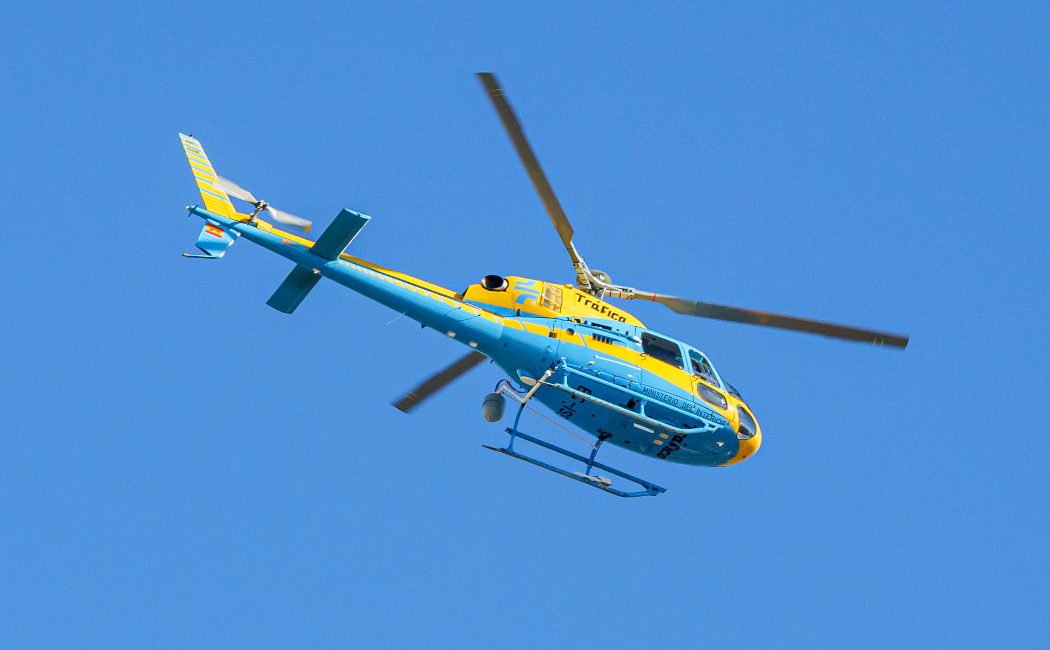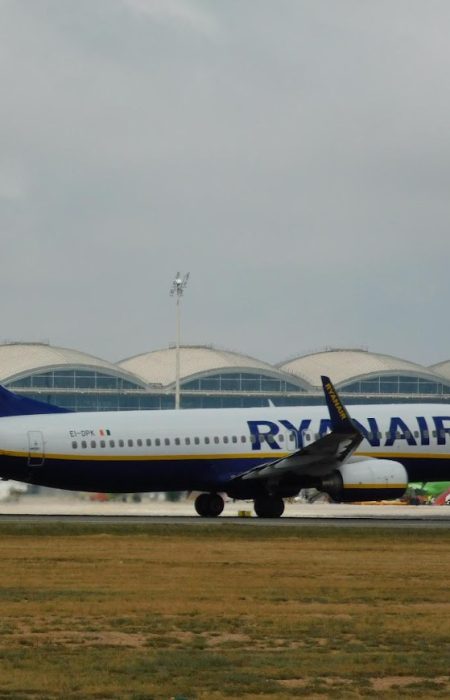The helicopters of the Directorate General of Traffic (DGT) have been out of service since last Monday, awaiting the award of a new aircraft maintenance contract. This agency verified this to Europa Press, and expects the Aircraft Unit to be operational in “a matter of days” after the deal is finalised.
The UGT and CC.OO. have condemned the situation as “absurd,” and have requested an explanation from the agency under the Ministry of the Interior. The DGT (Directorate General of Traffic) insures that road monitoring is carried out using other measures, such as traffic patrols, radars, surveillance campaigns, and surveillance centres. It also expects the nine DGT helicopters to resume flying “in a matter of days.”
“Road surveillance is assured because the rest of the resources are operational, and the helicopters are never off the ground 24 hours a day,” the Director of Ground Transportation claimed.
However, the UGT has also protested the inoperable state of 38 drones purchased by the DGT in 2020, “which are idle and rendered inoperable by order of the head of the Aerial Means Unit.” However, the General Directorate of Traffic notified Europa Press that these devices “are operational.”
The CC.OO. (Working Council of Workers) has accused the Ministry of the Interior of attempting to privatise “road safety” and criticised the offer of a contract worth “40 million over four years to a company,” which would leave all “the services on which aircraft depend” in private hands.
Consequently, the union argues, “all their requirements will be centralised in this single contract, with a single company,” which is going to expose “the doors of road safety to profiteering within the DGT.” This, they allege, is already taking place in Traffic Management Centres, “where private actors already have contracts worth more than 30 million euros every two years to perform tasks” within these agencies.
In the issue of management centres, CC.OO. has criticised the central government’s privatisation agenda in “these critical infrastructures and essential services.” According to the union, the existing display centres operate around 1,700 cameras, 2,000 information panels, and 2,400 data gathering stations, as well as many sections with reversible lanes.
“This allows for the issuance of warnings and the dispatch of assistance in the event of accidents, as well as other situations that occur on the road network,” said Fernando García Castro, Secretary General of the FSC-CCOO. The union expresses sorrow that the closure of the Aerial Means Unit leaves “patrols that, from bases in Madrid, Valencia, Malaga, Seville, Zaragoza, La Coruña, and Valladolid, cover all road safety requirements across the country.”
As a result, CC.OO. encourages the Ministry of the Interior to implement “necessary reforms to explore public avenues for progress that will protect the aforementioned services that contain critical and essential infrastructure.”








No Comment! Be the first one.